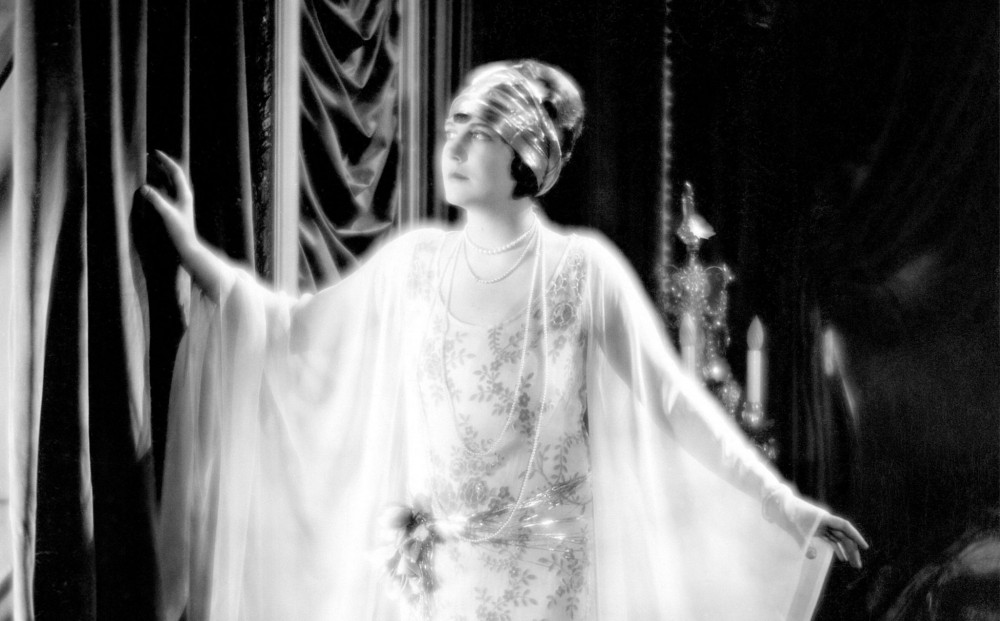Charles Chaplin's
A WOMAN OF PARIS
Chaplin’s greatest feature-length masterpieces — all in 35mm prints — will be screened alongside A WOMAN OF PARIS in the same week: CITY LIGHTS (1931), MODERN TIMES (1936), THE GREAT DICTATOR (1940), THE GOLD RUSH (1925), THE KID (1921), THE CIRCUS (1928), MONSIEUR VERDOUX (1947).
U.S., 1923
Written and directed by Charles Chaplin
Starring Edna Purviance, Adolphe Menjou, Carl Miller
Music by Charles Chaplin, newly restored by Timothy Brock
Approx. 82 min. 4K DCP Restoration
“The first serious drama written and directed by myself,” reads the opening title. For his premiere release for United Artists, Chaplin chose a sophisticated subject. Chaplin, already the most famous person on the planet—whose comedies (in which he had appeared in every scene) were shown in every corner of the world—now wrote, directed, produced (and later scored) a picture in which he’s onscreen for only a few seconds as a train porter (and unrecognizable). A title card at the opening of the film warns his public that he’s not in it.
Edna Purviance (Chaplin’s real-life lover and leading lady in over 30 of his Mutual and Essanay comedies) stars as the eponymous femme kept by rich philanderer Adolphe Menjou, in his breakthrough role (he would become a popular leading man and character actor in the 20s, 30s and 40s, and would give a memorable performance in Kubrick’s PATHS OF GLORY). The film’s subtle use of innuendo and objects to reveal relationships were a major influence on filmmakers of the 20s, most notably Ernst Lubitsch.
Critical reception for A WOMAN OF PARIS was strong, but after weak box office earnings, Chaplin withdrew the film from public exhibition. Fifty years later, in 1976, just a year before his death, Chaplin reissued a heavily-edited version with a new musical score by himself (replacing the original 1923 score by Ferdinand Gottschalk). His new score was the final completed work of his 75-year career. A few years ago, a series of over 19 hours of home and studio recordings were miraculously recovered—dating back as early as 1951—of Chaplin composing on the piano. He had left behind no written scores of this music. Composer/conductor Timothy Brock, one of the world’s foremost authorities on silent film music and an acclaimed composer of original music for silent cinema, has restored and enhanced Chaplin’s score for this new release.
Restored in 4K by Fondazione Cineteca di Bologna at L’Immagine Ritrovata Laboratory. Music by Chaplin, newly restored, orchestrated and conducted by Timothy Brock.
A JANUS FILMS RELEASE
Reviews
“The director’s manner is deft and witty, but his depiction of unchecked wealth and the moral rot it breeds (as seen in the carefree stripping of one reveller by another at exactly the kind of riotous house party that Chaplin must have known by the dozens) links this drawing-room romance to the fierce political comedies in which he stars.”
– Richard Brody, The New Yorker
“The wisdom of A Woman of Paris, which was first released in 1923 but often feels as if it were made just yesterday, really does seem boundless; so do the affection and generosity with which Mr. Chaplin presents his characters.”
– Janet Maslin, The New York Times
“While at first glance it may seem like a rather ordinary melodrama, A WOMAN OF PARIS is actually a milestone in its presentation of characters and the performances of its actors. Screen drama during the early 1920s was filled with selfless mother figures, clearly defined heroes, and stereotypical villains. Chaplin presents the hero in A WOMAN OF PARIS as a mother-dominated weakling. The villain is witty and charming.”
– James L. Neibaur, Senses of Cinema
“I was absolutely knocked by it, because suddenly the whole medium grew up. Before my eyes. Nobody had ever really done any realistic films at all before, it was all make-believe, you know, and emotions were make-believe, as well as the people […] Suddenly, here was a grown-up film, with people behaving as they do in life, and scenes treated with an enormous sophistication […] The script is impeccable, and the direction is impeccable, and would be impeccable today.”
– Michael Powell (interviewed by Kevin Brownlow in 1977)

